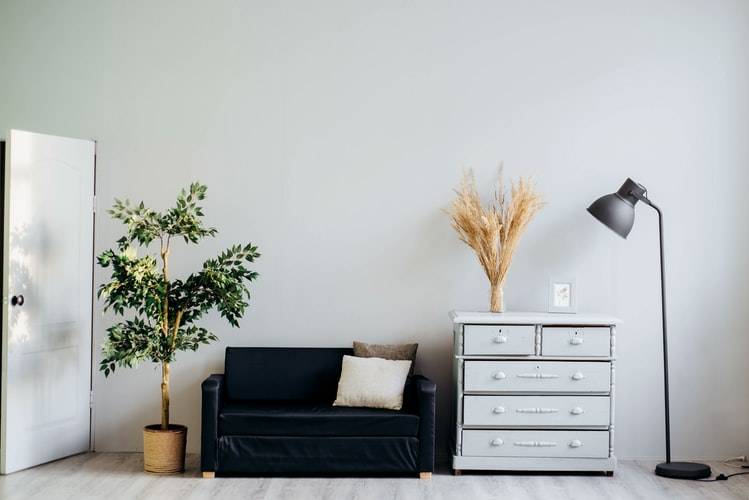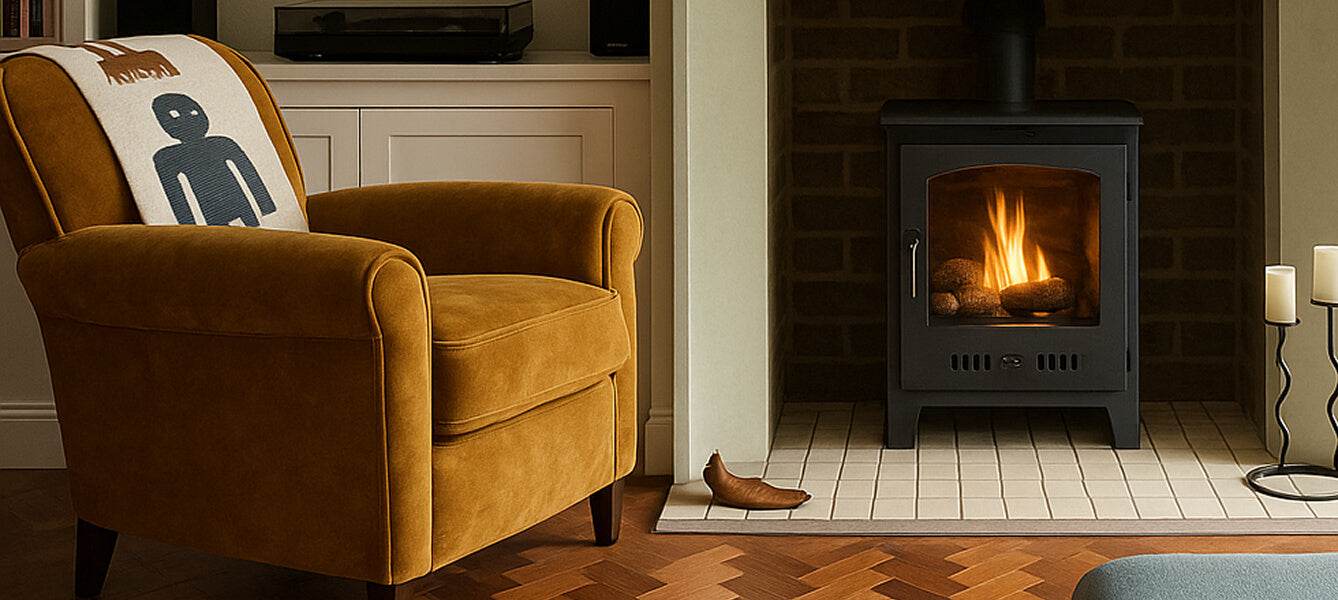
Feng Shui for Beginners: A Guide to Harmonising Your Home
Feng shui is an ancient Chinese practice that dates back to around 4,000 B.C. It is considered to be a kind of art or science that helps practitioners to achieve a sense of peace and contentment in their lives. Despite its age, feng shui continues to live on in the cultural imagination - proof, perhaps, that it can enhance people’s lives and help them to escape from the stresses of the modern world. This guide offers some helpful feng shui tips for your home.

Key principles of feng shui for beginners
Before you start incorporating feng shui into your home, it is a good idea to get to grips with the key principles of the practice. These include:
1. The energy of chi (or qi)
According to feng shui traditions, all living things are animated by cosmic energy known as chi. Chi is constantly flowing around the Earth, including in and out of people’s houses, and it can carry positive or negative powers depending on the objects it flows past. In this way, the furniture arrangement is fundamental in feng shui and can affect how happy and contented inhabitants of a home feel. For a deeper explanation of chi, Energy Arts is a good place to start.
2. Yin and yang
Another key principle of feng shui is so-called ‘balance’, represented by the energies yin and yang. Yin symbolises feminine energy and is passive, cold and dark. Yang, on the other, symbolises masculine energy that is active, warm, and bright. The two energies complement each other and are constantly in motion. It is thought that environments with well-balanced levels of yin and yang are perfect for instilling peace and contentment in people.
3. The five elements
Proponents of feng shui traditions believe that there are five fundamental elements that govern how balanced a space feels. These include wood, fire, water, earth, and metal.

This does not mean, of course, that every space must literally include these elements. Rather, symbolic manifestations of these elements must be carefully placed in a room. Water, for example, can be represented by wavy glassware or blue ornaments. Fire might be represented by warm colours or soft lighting.
How can feng shui help you to organise your home?
Once you’ve grasped the basic principles of feng shui, it’s time to start applying them to your personal space. Of course, to do this you will need to work from a blank canvas, so it is a good idea to throw out any items that you do not need or want. After all, for positive energy to flow, you only need to retain objects that hold some kind of importance in your life.
Once your house feels a little clearer, you can start thinking about which rooms in your home need the most work. For example, if spending time in your living room induces negative emotions, you may want to start decorating your living room first. It is important not to ignore any rooms as negative energy can easily flow from one space into another.
Feng shui tips for your bathroom
A feng shui bathroom will enable you to feel fresh, revived and very clean after a long day’s work. Indeed, a properly arranged bathroom can help you to symbolically wash away the hardships of the day. Here’s how to achieve it.

1. Keep it well-ventilated
Bathrooms can easily get moist and stuffy, particularly if you’re a fan of hot baths. Help the air in your bathroom to flow smoothly by installing an extractor fan.
2. Include lots of blue and green hues
Water is a valuable element in bathrooms and can be represented with blues and greens. Blue tiles or a green shower, decorative curtains, for example, will help to invoke feelings of freshness and rejuvenation.
3. Let wooden ornaments embellish your bathroom
As described above, feng shui is all about achieving balance. Counteract your water elements by using some wood ornaments on your bathroom shelves.
Feng shui basics for your living room
For most homeowners, the living room is a place to catch up with friends and family, as well as to relax and unwind during lazy weekends. In this way, it is very important that you get the feng shui just right. Here’s how.

1. Spread the love with some family photos
The living room is a prime spot to display photos of your friends and loved ones. Remember that feng shui is not just about arranging objects effectively - it is also about generating positive feelings and displaying the best aspects of your personality.
2. Think carefully about where to place your sofas
Sofas and chairs have a very important part to play when it comes to facilitating bonding between family and friends. Indeed, placing your furniture in positions that make people feel enclosed or cornered can generate negative energy and impinge on the overall feng shui of a room. As a rule of thumb, try placing sofas against walls and opposite windows and doors. This can help evoke feelings of security and help people to feel relaxed.
Having said this, it is also important to avoid placing large paintings or pictures directly above your seating area, as this can cause feelings of discomfort.
3. Ensure there is plenty of natural light
One of the top feng shui basics for your home is to make sure that there is plenty of natural light. Allowing light to flood into your home can be tricky, particularly if your rooms lack large windows. Fortunately, however, there are ways around this.
4. Avoid sharp plants
Plants are a fantastic way to achieve feng shui in your home as they can help purify the air and encourage feelings of calm and clarity. However, it is also important to note that plants that are too sharp or imposing can cause feelings of discomfort and negativity between living room dwellers.
5. Try to make the room feel warm
Remember that yin and yang are all about balancing feminine (cool) elements with masculine (warm) elements. To achieve a feeling of warmth, you could try incorporating reds and oranges into your colour scheme. Alternatively, you could let a bioethanol fireplace bring the heat to your room. As well as being much cleaner than traditional fireplaces, bioethanol fireplaces can produce positive chi by generating feelings of warmth and happiness.
Feng shui for the bedroom
As a prime spot for sleep and rest, incorporating feng shui into your bedroom means cultivating your own personal sanctuary. Indeed, a feng shui bedroom should be serene, comfortable and intimate. Here’s how to achieve it.

1. Inject some sensuality into your home
So far, this feng shui guide has focused on the rejuvenating powers of colours such as blue and green. The bedroom is a great place to balance out the overall feng shui of your home with earthy reds and soft, feminine fabrics. Indeed, incorporating too many cool colours into your bedroom will detract from its sensuality and potential for intimacy. Regardless of whether you share a bedroom, investing in soft blankets and lighting candles every so often will create a wonderfully romantic atmosphere that will help you feel peaceful.
2. Make sure that your bedroom feels safe
Creating a personal sanctuary means making your bedroom feel as safe as possible. This can be achieved by placing your bed far away from the door and remembering not to line it up against a wall. It is also a good idea to get rid of any sharp objects or items that hang above the bed and could potentially fall on you.
Feng shui for the kitchen
The kitchen is strongly associated with the element of fire in feng shui, a force of wealth and abundance. It is also a place that provides people with nourishment and energy and should be respected as such. Here are a few tips for practising feng shui in your kitchen.
1. Keep it clean
Cleanliness and clarity are absolutely foundational to the practice of feng shui, so make sure you keep surfaces sparkling.
This video offers some great advice on how to keep your workspace clean whilst cooking.
2. Incorporate plenty of storage areas
Cluttered kitchens are the enemy of positive chi, so it is important that your kitchen features plenty of storage space for utensils, crockery and other kinds of kitchenware. If your room is small, consider adorning the kitchen with ceiling cabinets that allow plenty of energy to flow throughout the room and help it to feel light and airy.
Feng shui for hallways and front doors
The front door is possibly the most important part of a dwelling according to ancient feng shui tradition. This is because the entrance to your home represents the ‘mouth of chi’, or the space portal through which positive energy is allowed to enter your living space. As such, your front door plays an important role in your overall sense of happiness and well-being and deserves plenty of care and attention. So how should you go about cultivating the perfect entrance space?
1. Enchant yourself with appealing ornaments
There are plenty of simple feng shui ornaments for home you can purchase to make your entrance feel welcoming and inviting such as potted plants, flowers, or a customised doormat.
2. Make sure it is easy to find
There is nothing more repellent to visitors than a front door that is difficult to find. Make sure that you deploy a bold and beautiful house number to help guests out.

3. Get rid of obstructions
Obstructions can prevent positive chi from entering your house and can affect the feng shui in all of your rooms. To avoid this fate, remember to keep your entrance clutter-free and remove potential obstructions. As well as improving the feng shui of your home, it will prevent people from tripping up.
A few final points
Hopefully, this guide has offered a few useful pointers about feng shui and its uses in your home. Whilst you may be a little sceptical about the uses of this ancient practice at first, trying out the above interior design tips along with other home decoration ideas will help bring a little peace and calm to your life and those around you.
If you’d like to check the flow of chi in your house, try closing your eyes and thinking about a deluge of water entering through the front door. How quickly do your rooms get wet? Are there any rooms that would remain untouched by the water? What kinds of objects might block its path? A home with perfect feng shui would get wet very quickly. If the water were positive chi, therefore, your home would be full of soothing and calming energy.

Finally, remember that feng shui should not be a stressful or prescriptive process. Have fun with it and indulge in its harmonising powers.
